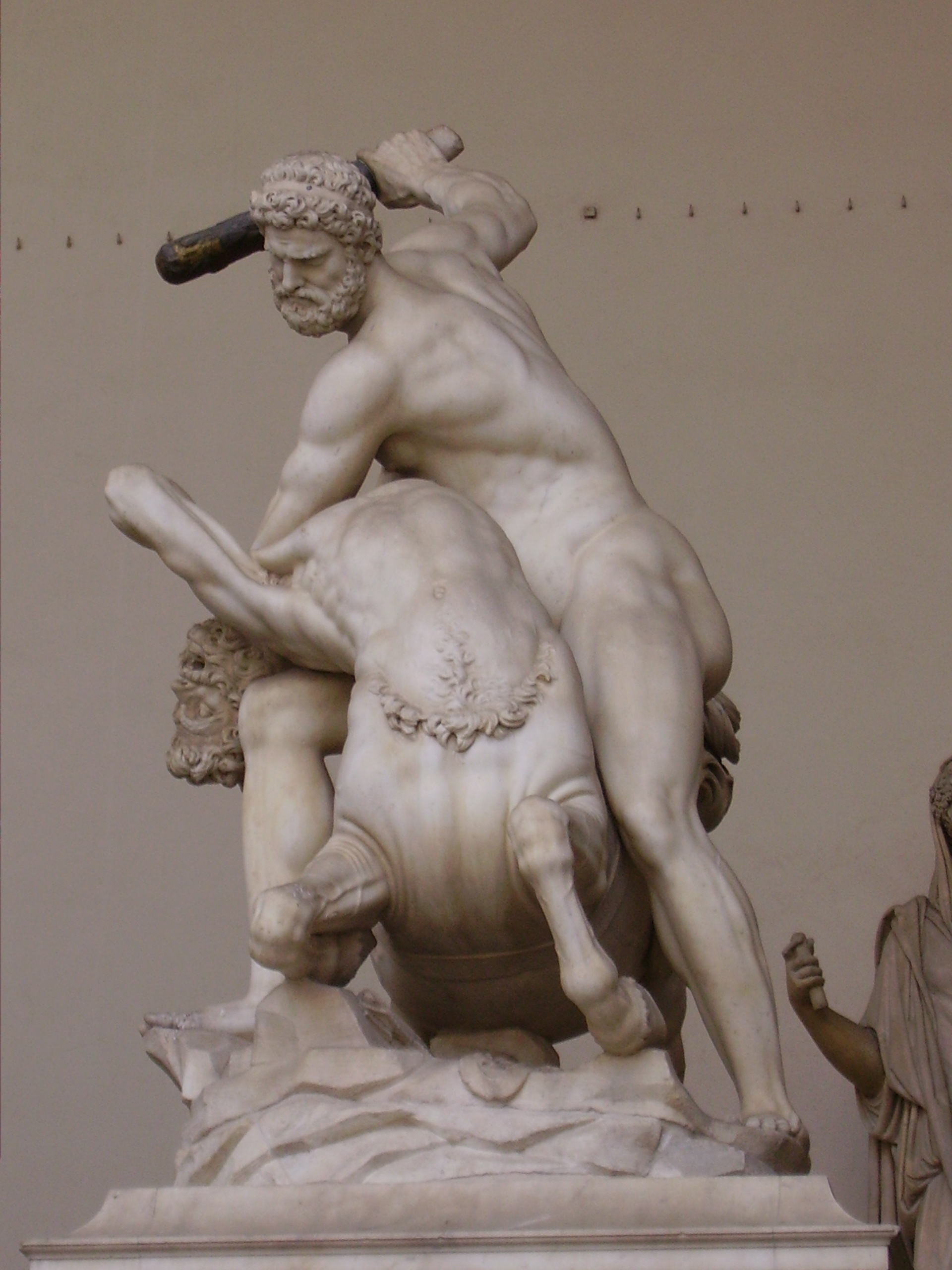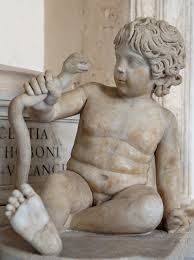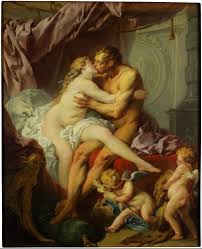
In ancient Greece there was one man whose legend rose above that of everyone else. He was one of the few mortals whose fame equaled that of the gods themselves. Granted, he was a mythical figure, but unlike the gods, the fact of his own mortality meant that he could serve as an inspiration for the countless generations of men growing up. His strength, courage, confidence, and tenacity were all traits that were greatly admired among the Greeks.
His exploits showed that even mortals can achieve incredible things. Stories about him were recounted around countless fires. These tales were meant to educate young men on what it took to be a man right from childhood. Every Greek warrior going into battle had been raised on tales of this extraordinary hero. Men wanted to be him and women wanted a man like him. This man was Heracles.
Background on the myth
In today’s day, Heracles is better known under the name Hercules. However, Hercules is only the Latin version of his name, for the Ancient Romans also incorporated his legend into their own mythology. His image was so powerful that emperors like Commodus pretended to be him, thinking that this would give them his strength.
Ancient Greek mythology is a great source of inspiration and wisdom. In the ancient world, one of its chief purposes served to educate people (and not only entertain them), so each story often contained a moral or a lesson that the listener should take away. The myths that Heracles stars in are full of these types of lessons.
According to ancient legend, Heracles was born as the son of Zeus and Alcmene, a mortal woman. Zeus disguised himself as her husband and came to her in order to make love. Out of this union, Heracles was born. The story has a twist though. Alcmene’s real husband also came to her that night and out of that union was born Heracles’s twin brother, Iphicles.
This infidelity angered Hera, the wife of Zeus, and she would serve as the main source of trouble for Heracles. Throughout his life, she would try to hurt or kill him in a lot of ways, but always ended up unsuccessful.
Heracles was a man who could overcome any challenge thrown at him. This ability he demonstrated from a very early age. When he was eight months old, Hera tried to kill him by sending two snakes into his room. While his brother was crying, the little Heracles grabbed both snakes into his hands and strangled them. On the basis of this, the blind prophet Tiresias predicted a heroic future for the boy.
This prediction was fulfilled and Heracles, as one of the few mortals, grew to achieve immortality. At the end of his term, he was granted immortality and rose to take his place among the gods on Mt. Olympus.
However before this took place, he had to battle many enemies, pass through many obstacles and perform many heroic deeds. His travels took him to all corners of Ancient Greece and many places beyond.
The 12 Labors
Probably the most famous story about Heracles concerns the 12 labors he had to do. This particular story begins with him living a quiet family life with his wife and sons, but one day Hera casts a spell on him, driving him mad. In a fit of rage, Heracles kills his entire family.
Once he recovers from his madness, he is deeply saddened by what he has done and tries to find a way to atone for it. He goes to the Oracle of Delphi to try to ask for guidance. The Oracle tells him that he can atone for his sins by going to live in the court of King Eurystheus and do whatever the King asks of him.
Heracles reluctantly agrees to this. At the court, the King tells him that he has to perform 10 tasks:
1. Slay the Nemean lion
2. Slay the nine-headed Hydra
3. Capture the Golden Hind of Artemis
4. Capture the Erymenthian boar
5. Clean the Augean stables in one day
6. Slay the Stymphylian birds
7. Capture the Cretan bull
8. Steal the man-eating horses of the giant Diomedes
9. Obtain the girdle of the queen of the Amazons
10. Steal the cattle of the giant Geryon
When Heracles performed these 10 tasks, he stands in front of Eurystheus and asks for a pardon. However the cunning King makes an excuse to not accept two of the tasks and tells Heracles that he needs to perform two more tasks.
11. Steal the apples of the Hesperides
12. Descend into the underworld and capture Cerberus, the three headed dog who guarded the entrance into the land of the dead
Heracles didn’t hesitate and accomplished these two extra tasks.
The completion of these tasks assured Heracles his freedom. He would go on to many other adventures, such as joining Jason and the Argonauts on their quest to find the Golden Fleece. However, the 12 tasks alone were enough to grant him immortality.
Lessons we can use today
There are many lessons that we can learn from Heracles and his life. He was a troubled hero and his main weakness was that he could not control his emotions, often going into fits of rage. Heracles shows us that we should always have our emotions under control. If you don’t, you might come to regret it later.
Heracles also had many positive traits outside of his heroism. For the Ancient Greeks, he was a prime example of virtue and manliness, the Greek words for these qualities being “arete” and “andreia.”
“Arete” means virtue or excellence. It is something that all men strived for. It grew to encompass many meanings, but its initial and primary meaning was strength and courage. These are also the traits that the stories of Heracles were meant to primarily demonstrate.
Heracles always faced his challenges head on, he never wavered, never backed down. He faced the greatest threats that the mythical world could throw at a man, and he came out victorious. His courage was relentless and his strength was legendary.
The stories of Heracles were a way to encourage young men to be inspired by his enormous courage and to try to cultivate it within themselves. The Ancient world was full of war, full of different challenges, and a man needed to have courage and strength in order to survive. Luckily he had good examples to look up to. Whenever in doubt, whenever afraid, he could go back to the stories and ask himself: what would Heracles do?
Heracles also served as a prime example of “andreia”. This word can only be translated as “manliness.” “Andreia” meant the essence of the man, his raw strength and energy. As such, it was to be cultivated and grown. It is also the love of hard work and toil, always struggling to come out victorious. For a man has to struggle and work hard in order to be a man. There is no other way.
Heracles was also quite the ladies man. He was married four times and always acquired a lover wherever he went. One famous story has him arrive at the court of King Thespius, who asks him to kill a lion that has been ravaging the countryside. He does this and as a reward, King Thespius offers that he can make love to his daughters, all fifty of them! Heracles doesn’t hesitate and makes love to all of them, in one night!
If you need a hero to look up to, if you need to a bit of encouragement, if you need a bit of inspiration to work hard and overcome challenges, think of Heracles. He was a mortal who rose up to become immortal on the basis of his courage, hard work, self-discipline and strength.
It is more in accord with nature to emulate the great Hercules and undergo the greatest toil and trouble for the sake of aiding or saving the world, if possible, than to live in seclusion. — Cicero in “On duty”
Read more: The Speech To Save Your Life



Leave a Reply